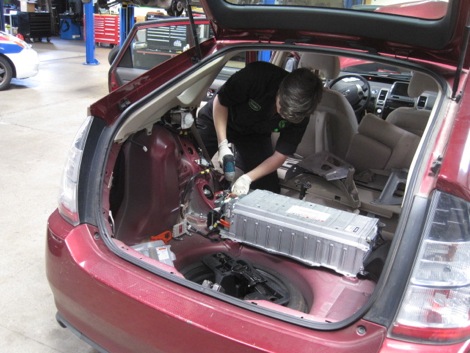So, as was mentioned, I don't know where you got a lot of those numbers from, but they are fantastically wrong. I'm hoping it's just an honest mistake based on a misunderstanding of EV's, not a deliberate attempt to smear them, but lets set some things straight.
No attempt to smear -- I spent a lot of time with the Chevy dealer looking for ways to make this work -- those are their numbers, not mine. I ended up with a Cruze LT, the comparison was with a VOLT LT - that's about as apples to apples as you can make it. The prices of each car were the best I could negotiate (for the Cruze it was the price I paid) all in after tax and rebates. The Volt also required a $2000 220v CopperCreek charger as quoted by the dealer. I did not include the $500 cost to install this in my garage.
For EV's you can't use the MSRP as the comparison, at the time I was looking there was Zero/0/notta discount on EVs. In some cases like the Bolt, dealers were charging a hefty premium over MSRP. I see the Volt prices have come down a bit recently, but with a charger they are still $40K out the door.
First, electricity isn't $0.020/kwh. Off peak (which is when most EV owners charge) it's $0.065/kwh. Less than a third of what you posted. Even if you insist on charging during on peak hours it's less than $0.20/kwh, so I'm not sure where that number came from. If you're trying to roll in delivery fees and such that's a bit of a misnomer in the end as you're paying those anyways for your regular home electricity usage so trying to lump all those fees onto the EV figures is a fallacy.
Wrong again. The energy itself costs .065/kwh to -- delivery and other fees are metered too, only a portion is fixed rate. You also pay HST on all but the base electricity charge. For me the average off peak 'extra cost' are about 0.085 where I live.
But, your kwh/100KM consumption for the Volt is off the charts wrong and seems to be pulled from either the consumption figures of a Tesla (driven very aggressively at that, not all EV's are equally efficient either - the Porche offerings for example are energy pigs), or is a confusion between Kilometers and Miles, since most stats out there are in US figures.
This article may be of interest for you, or anyone considering an EV actually.
So, an actual more realistic figure is around 17Kw/100KM. In the summer in stop and go or city traffic (which is far MORE effecient on an EV vs a gas car, opposite from the usual) that can easily drop to the sub 15 level, but lets say 16.5kw/100KM as an average.
You are partly correct, that's how much energy the batteries hold and use to cover 100KM. You are missing the fact that charging batteries takes energy itself as chargers are about 80% effecient -- you pay for that loss. Add charging loss to your 17kwh and you get my number.
Doing the calculations again, assuming off peak electricity, you now have a cost of $1.07 for those 100KM's.
My numbers are right. Your numbers considered the price of electricity, you forgot to add network loss charges losses (4%), the metered portion of utility admin/delivery costs .08kwh, HST etc on non-energy utility charges -- and you are assuming the car never needs to be charged outside non-peak hrs.
Over a 25,000KM year as you listed, yearly cost for the Cruze is $2217 in gas. For the Volt, $240 in electricity, for a savings of almost $2000/year.
No again. You are not taking into account anything but the raw cost of energy at the absolute cheapest time of use. That's unrealistic. There are lots of studieds on the Volt, when compared to a Cruze nobody gets 50% fuel savings.
If you think this is the case, step into a dealer - you can get a Cruze LT for $22K OUT THE DOOR. Volt prices have dropped a lot, but with a charger you're still looking at out the door. The dealers I went to laughed at the GM price your car printouts I brought to them.


